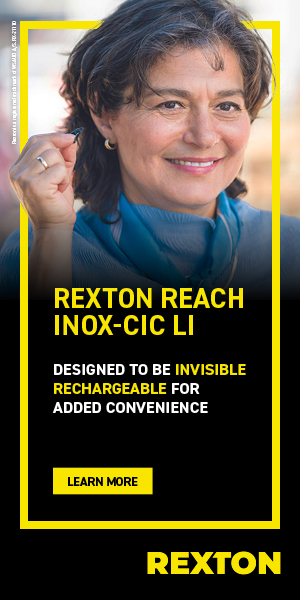Coping with Hearing Loss
A person who loses their hearing may go through a myriad of emotions trying to understand their hearing loss. They may be in denial, feel anger, guilt, fear, sadness, confusion and even loneliness. They grieve this loss as they would any other loss in their lives. People who deny having a hearing loss may blame others for mumbling or talking too softly. Others may try to monopolize the conversation so they won't need to listen, or choose to withdraw so they won't have to strain to hear. Some people become suspicious that others are talking about them when they can't clearly hear the conversation. Because it is more work to hear and communicate, people can become very stressed and tired.
There are several factors that will affect a person's ability to cope with their hearing loss, including a person's social support, educational background, economic status, and occupational demands and accommodations. In addition, personality and the ability to adjust to change may affect how each person deals with the problem.
Is a Hearing Aid Enough?
The majority of the 6.5 million hearing aid users, when first fitted with their hearing aids, feel that using a hearing aid will solve all their problems. In reality, a hearing aid does not magically restore hearing to normal nor will it provide enough help to meet all the needs of a person with a hearing loss. Successful treatment for hearing loss is a process that involves ongoing evaluation, education, and support. A comprehensive program of audiologic rehabilitation is crucial following the purchase of a hearing aid.
What is Audiologic Rehabilitation?
Audiologic rehabilitation is much like receiving physical therapy after an injury. Audiologic rehabilitation services for adults focus on adjusting to hearing loss, making the best use of hearing aids, exploring assistive devices that might help, managing conversations, and taking charge of communication. Services can be individual, in small groups, or a combination of both.
Many audiologists take this opportunity to review different types of hearing aids and how they work. This is helpful to understanding why a certain hearing aid was selected for a specific person. This review also helps family members understand that a hearing aid is a prescription and that it was chosen because it met the needs of the person's specific hearing loss and their common communication situations.
Assistive Listening Devices Amplify Hearing Assistive listening devices (ALDs) are electronic devices that can be used by themselves or with hearing aids to help individuals understand speech in difficult listening situations. There are several types of ALDs, and an ASHA-certified audiologist can determine which ALDs would be the most appropriate in order to meet each person's unique hearing loss and listening needs.
In group listening situations, an FM system can be used with or without a hearing aid and is beneficial in homes, offices, classrooms, theaters, courtrooms, places of worship and lecture halls. FM systems use FM radio waves to transmit sound from the sound source to a receiver worn by a person who is hearing-impaired. Installation of this system is easy and signals can be picked up from long distances. Other devices include Infrared systems and Induction loop systems.
To help with one-to-one communication, a hardware personal system may be used to bring the listener closer to the source of the desired sound, thereby reducing background noise. The user is connected directly to an immobile electronic system by an earphone or headphones. This system can also be used to improve TV viewing and radio and stereo enjoyment because it usually offers good sound quality with minimal signal loss.
Telephone amplifiers, voice carry-over telephones and text telephones (TDD or TTY) are all useful in helping a hearing impaired person communicate using a telephone. There are also devices that can help a person hear the doorbell or an alarm clock.
For help finding ALDs, consumers may call 1-800-638-8255 or go to www.asha.org for a referral to an ASHA-certified audiologist.
Facts:
Audiologists are hearing health care professionals who specialize in preventing, identifying and assessing hearing disorders as well as providing audiologic treatment including hearing aids and other assistive listening devices.
The American Speech-Language-Hearing Association (ASHA) is the national professional, scientific and credentialing association for more than 115,000 audiologists, speech-language pathologists and speech, language, and hearing scientists.

